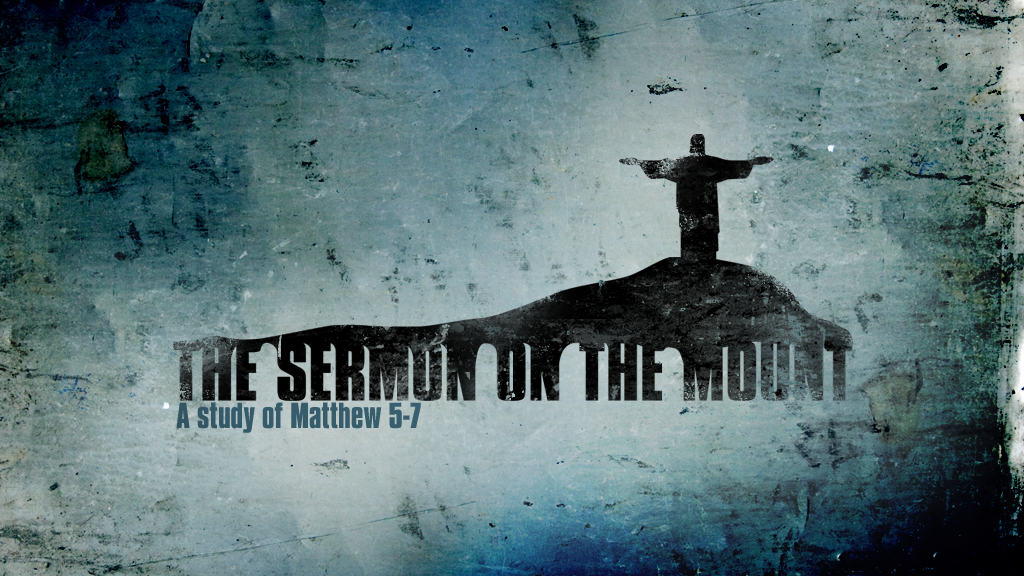
Some of you may be familiar with the hypothetical story of what would happen if Jesus hired a consulting firm to evaluate personnel for His ministry. I imagine the response from the management firm would look something like this:
Jesus, Son of Joseph
Woodcrafter Carpenter Shop
Nazareth, Galilee
Dear Sir:
Thank you for submitting the resumes of the 12 men you have picked for managerial positions in your new organization. All of them have now taken the battery of tests and we have run them through our computers. It is the staff’s opinion that most of your nominees are lacking in background, educational and vocational aptitude for the type of enterprise you are undertaking. They do not have the team concept. We would suggest that you continue your search for persons with experience and proven capability. Simon Peter is emotionally unstable and given to fits of temper. Andrew has no leadership skills at all. The 2 brothers, James and John, place personal interest above company loyalty. Thomas demonstrates a questioning attitude that would tend to undermine morale. We feel that it is our duty to inform you that Matthew has been blacklisted by the Greater Jerusalem Better Business Bureau. James the son of Alphaeus, and Thaddaeus have radical leanings and registered high manic-depressive scores.
Only one of the candidates shows great potential. He is a man of ability and resourcefulness who meets people well and has a keen business mind. He has contacts in high places and is highly motivated, ambitious and responsible. We recommend Judas Iscariot as your treasurer and right-hand man.
We wish you every success in your new venture.
Sincerely yours,
Jordan Management Consultants
Jerusalem, Judea
We laugh at such silliness but at the same time we must admit this is the way of the world – always looking at the externals.
Today we arrive at one of the most well known and often quoted passages of Scripture. Chapters 5-7 of Matthew’s gospel contain the “greatest sermon” ever preached – what we call the Sermon on the Mount.
What makes this sermon, this teaching so important? One of the primary themes we’ll see in Jesus’ teaching in these chapters is that the message and work of Christ is internal, spiritual, and moral, not external, physical, or political.
That presents an immediate dichotomy between what Jesus says and what the world says. For example:
- God says “the first shall be last.” The world says “go for the gusto.”
- God says “you gain your life by losing it.” The world says “look out for #1.”
- God says “greatness is achieved through humbleness, compassion, meekness, a longing for righteousness, being merciful, pure in heart, and peacemaking.”
- The world says “greatness is achieved by asserting yourself; standing up for yourself; by being proud of yourself; by elevating yourself; and by avenging yourself.
So right from the start of this great sermon Jesus tells us several things that are absolutely essential to living for God.
- Jesus tells us about the absolute necessity of the new birth. The standards that Jesus sets forth in this teaching are not attainable by mere human effort. We must possess the power of God in order to live this way. Thus only those who are born-again, who possess the Spirit of God within them can fulfill what Jesus commands in these chapters.
Thus we see that this teaching of Jesus goes beyond actions and behaviors to address the very attitudes of people. This is a hard thing for people to grasp here – God is not so much interested that people do what appears right as He is that they be right in their spirit.
This truth is illustrated time and again by Jesus prefacing His teaching by saying “You have heard it written.”
- The Sermon forces us to see Jesus Christ as man’s only hope of meeting God’s standards.
- The Sermon shows us God’s pattern for happiness and true success. Here we will learn God’s prescription for joy, peace, and contentment.
- The Sermon gives us one of the greatest Scriptural resources for reaching others for Christ. Here’s a guarantee folks – if you will determine to live your life in obedience to Jesus teachings you will become a “spiritual magnet.”
- Taken together then, the Sermon instructs us in the manner of life that is pleasing to God.
Needless to say, I’m very excited about what God will teach us through the Sermon on the Mount in the next several weeks. My prayer is and will continue to be that you will seek to know Him more and more by applying His truth in your lives.
Proverbs 3:5-6 best describes my attitude as I approach this series of teachings:
“Trust in the LORD with all your heart and do not lean on your own understanding. In all your ways acknowledge Him, and He will make your paths straight.”
As we begin our study this morning let’s re-establish the context for chapter 5 by reading 4:23-25.
What I see here is the compassion of Jesus for God’s creation. I believe Jesus saw the spiritual hunger on the faces of the people. He was telling them he had come to announce God’s kingdom, God’s deliverance from the yoke of sin, and God’s healing of the sinner’s heart.
You’ll recall it was this very proclamation that incited Jesus’ hometown to try and kill him.
We read this account in Luke 4:17-21:
“And He came to Nazareth, where He had been brought up; and as was His custom, He entered the synagogue on the Sabbath, and stood up to read.
And the book of the prophet Isaiah was handed to Him. And He opened the book and found the place where it was written,
“THE SPIRIT OF THE LORD IS UPON ME,
BECAUSE HE ANOINTED ME TO PREACH THE GOSPEL TO THE POOR.
HE HAS SENT ME TO PROCLAIM RELEASE TO THE CAPTIVES, AND RECOVERY OF SIGHT TO THE BLIND,
TO SET FREE THOSE WHO ARE OPPRESSED,
TO PROCLAIM THE FAVORABLE YEAR OF THE LORD.”
And He closed the book, gave it back to the attendant and sat down; and the eyes of all in the synagogue were fixed on Him.
And He began to say to them, “Today this Scripture has been fulfilled in your hearing.”
Here in Matthew 4 we see Jesus clearly fulfilling what He said He came to do. It’s easy to understand why the multitudes of people followed Him everywhere – He was an amazing man. This gives us some background and context for what we read next.
5:1
What was it about the crowds that Jesus saw? I think Jesus saw a couple of things. First He saw their lostness. Some of the people that followed Jesus realized their sin and came to John for baptism. They were no doubt there when John proclaimed Jesus to be the “lamb of God who takes away the sin of the world.”
These were the people that followed Jesus because they understood God was at work and they wanted more.
I think Jesus also saw people who were there for the “show.” You know the kind. Something interesting or even amazing happens and the next thing you know you have all these “groupies” clamoring to see and be seen. Jesus would later describe them in the parable of the sower as the seeds sown on the road and the rocky soil.
Notice the verse says Jesus sat down. The Jewish rabbi’s almost always sat down to teach. If fact, speaking while standing in that culture was considered informal or unofficial; sitting down made the teaching authoritative and official.
We see vestiges of this today when we speak of college professors “holding a chair” of teaching.
When the Roman Catholic Pope gives an official pronouncement, it is said he speaks “ex cathedra,” which is Latin for “speaking from the chair.” Again, alluding to speaking with authority in matters of Roman Catholic doctrine.
So when Jesus sat down on the mountain side the people understood that He was speaking authoritatively concerning the kingdom of God.
As a whole then Jesus saw the multitude of people as God’s creation, needing to hear God’s truth and so the passage says He sat down to teach them – verse 2.
Can’t you just picture the scene folks? The people followed Jesus because He had spoken to them words like no other rabbi had spoken. They were words of life and hope.
Not only that, but Jesus backed up what He said with action. He demonstrated a compassion for the people that the Jewish religious leaders did not show. He was concerned about them as people.
I imagine it got very quiet on the mountain side that day when Jesus began to speak. It got even quieter when Jesus unloaded this bombshell on them – verse 3.
This is the first of a series of what are called “The Beatitudes.” Beatitude is from a Latin word meaning “a state of happiness or bliss.” Immediately Jesus sets forth what could only be seen as a paradox.
I imagine there was a shocked look on the people’s faces. The first question that would have come to their minds was “what does poor in spirit mean?” And then a second question, “How can the poor in spirit be blessed?”
From the perspective of the common Jew there was nothing blessed about being poor. As I’ve already pointed out however, Jesus was not speaking of external factors. He was speaking directly to the spiritual aspect of man.
So what does it mean to be poor in spirit? Let me illustrate by the negative, or by what it does not mean.
A story is told of a minister, a Boy Scout, and a computer expert (sorry honey) who were flying together on a short trip on one of those little planes I call “puddle jumpers.”
About mid-way into the flight the pilot came back and told the 3 passengers that he was going to have to make an emergency landing. The pilot said “we do have 3 parachutes if you’d feel better about your chances by jumping. But I would like to have one of the chutes because I have a wife and 3 small children at home.”
Without waiting to discuss the situation the computer expert jumped up and said “well, I’m the smartest man in the world and I’m working on a software program that will change the way banks do business and I’m taking one of the remaining 2 chutes.”
With that he grabbed one, strapped it over his back and jumped out of the plane. The minister looked at the Boy Scout and said “son, you take the last one because I’m ready to go be with Jesus at any time.”
The Boy Scout said, “Relax reverend. The smartest man in the world just strapped on my backpack.”
The world thinks it is so smart doesn’t it? The world laughs at humility, kindness, gentleness, and righteousness. The world says “happy are the rich, the successful, the glamorous, the popular, and the macho.”
This is a lie of Satan and comes straight from the pits of hell. In fact I’ll give you a perfect illustration from this week’s headlines. Did anybody read that Terrell Owens tried to commit suicide? He’s now refuting that but . . . .
Here’s a man, a professional athlete that has it all by the world’s standards. Money, fame, all the material things life has to offer and yet he was convinced that his life was not worth continuing.
You know what this says? It says that when you spend your life scaling that mountain trying to achieve what the world says you need in order to be happy you’re going to find that the world lied to you. Having given everything to acquire the world’s riches you find that you have nothing of importance.
Jesus turns worldly wisdom upside down here. The word poor in this verse is from the Greek word “ptochos” meaning “to shrink, cover, or cringe” and was used of beggars who were totally destitute; who had no means of making a living except begging.
But because Jesus says poor in “spirit” He qualifies the context as being spiritual. What He is saying is “blessed or happy is the one who recognizes their spiritual poverty.”
Let me clarify this even further folks. There is no happiness or blessedness in merely being spiritually poor. The spiritually poor that Jesus speaks of are those who recognize that apart from a saving relationship with God they are lost, hopeless, and helpless.
The picture is that the “poor in spirit” stand before God as totally destitute beggars asking for God’s grace and mercy.
Jesus taught this same truth in a parable that Luke recorded for us.
“And He also told this parable to some people who trusted in themselves that they were righteous, and viewed others with contempt: Two men went up into the temple to pray, one a Pharisee and the other a tax collector.
The Pharisee stood and was praying this to himself: ‘God, I thank You that I am not like other people: swindlers, unjust, adulterers, or even like this tax collector. I fast twice a week; I pay tithes of all that I get.’
But the tax collector, standing some distance away, was even unwilling to lift up his eyes to heaven, but was beating his breast, saying, ‘God, be merciful to me, the sinner!
I tell you, this man went to his house justified rather than the other; for everyone who exalts himself will be humbled, but he who humbles himself will be exalted” (Luke 18:9-14).
I don’t think it’s an accident that humility is listed first in this series of characteristics. Jesus mentions humility first because it is the foundation of what it means to be a Christian.
What is the opposite of humility? It’s pride. We know that pride has no place in the kingdom of God.
Pastor John MacArthur says this on the subject of pride:
“Until a person surrenders their pride he cannot enter the kingdom. The door into God’s kingdom is low and no one who stands tall will ever go through it. We cannot be filled until we are empty; we cannot be made worthy until we recognize our unworthiness; we cannot live until we admit we are dead. We might as well expect fruit to grow without a tree as to expect the other graces of the Christian life to grow without humility. We cannot begin the Christian life without humility, and we cannot live the Christian life with pride.”
Folks, until we are humbled, until we see that we are totally 24/7/365 dependent on God, we will not see Jesus as our Redeemer. Humility must precede everything else. You won’t receive Jesus until you understand that you’re not worthy of Him.
No one enters a saving relationship with God by saying “Hey, God, we’ll make a great team. I’ve got the talent, You’ve got the supernatural stuff, we’ll be great.”
Look at the result of understanding our spiritual poverty – for theirs is the kingdom of heaven.” Every one who bows before God in humility and confesses their sin will be saved. Humbleness before God leads to eternity with God.
Isaiah 57:15 says:
“For thus says the high and exalted One Who lives forever, whose name is Holy; I dwell on a high and holy place and also with the contrite and lowly of spirit in order to revive the spirit of the lowly and to revive the heart of the contrite.”
God desires that all people everywhere recognize their spiritual poverty so that He can make them spiritual rich. James says that we are to “humble ourselves in the presence of the Lord and He will exalt you” (4:10).
When we give up our earthly, temporal kingdom that is destined to end, God gives us eternal life that has no end.
What a wonderful beginning to the greatest sermon ever taught. Stay tuned for more of these most amazing words of Christ.
*This is from my Matthew series taught at Calvary Chapel of Lima from 2006-2008. I am currently teaching through Matthew again. This will be the 2015-2016 series and will be available in audio format soon. Look for those teachings on my teaching ministry site – The Transforming Word.
The Sermon on the Mount picture from Vinelife UK.


